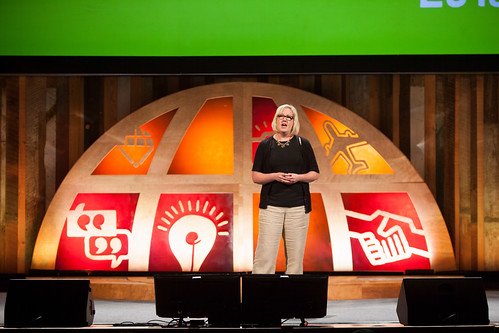A lot of things have been kicking around lately, and it started with this tweet:
Everything works out in the end. If it's not working out, it's not the end.
— Tim Van Loan (@TimIsHungry) September 3, 2013
And I thought: Well, that’s not right at all.
I don’t think about endings that often. I think about the journey a lot, and I think about the next steps, but I don’t think about endings. That’s for another day — somewhere far off, I hope.
But I do think about the journey. I think about the steps I take every day to get somewhere, and the goals I keep setting and resetting for myself as I go. There are a lot of steps — but no true endings in sight.
And when I read a quote like the one above, I think: What’s the flip side of that? If things are working out, does that mean this must be the end? And what happens at the end, anyway? Do I quit? Do I give up on the work I’m doing?
That doesn’t sound like much of a happy ending to me.
So that’s the first thing that’s been kicking around in my head.
And the second is this video that’s been on the internet for a long time. It’s from a Texas high school football playoff game in 1994. One team is up 41-17 with three minutes left in the game, and that’s when the comeback begins. There’s a touchdown to cut the lead, and then a recovered onside kick. And then another touchdown. And another onside kick recovered.
And then another touchdown. And another onside kick.
And then one final touchdown — from 41-17 down to 44-41 up in just three minutes.
Which is where the story should end. Which is where we want it to end.
Except… that’s not where it ends.
Because life isn’t about where it ends; it’s about where you go. It’s about what you do along the way. It’s about what you make of all of this — the good, the bad, the everything else.
We search for endings because stories must end eventually, and each of us is writing our own story. But our stories are not over yet.
We keep going. We keep pushing. We resist the urge to write that ending.
There’s still more to do.
That image at top comes via @_michelada44_.







